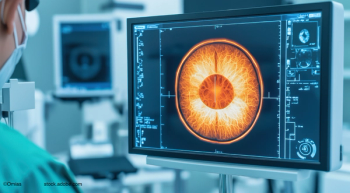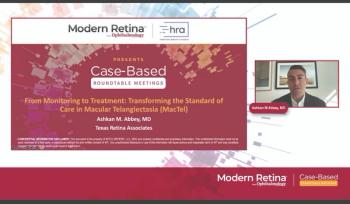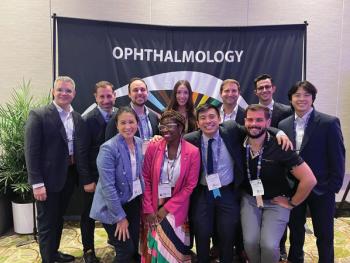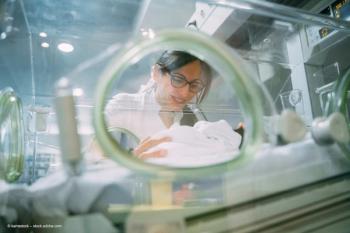
Schepens Lecturer shares ideas for moving forward in AMD
Observing that the introduction of new therapies for AMD seems to have hit an impasse, Joan W. Miller, MD, discussed the processes by which medical knowledge advances and proposed areas for increasing knowledge about AMD as a basis for advancing treatment.
Dr. Miller was honored during the first day of the 2018 Retina Subspecialty Day meeting as the 11th recipient of the Charles L Schepens, MD, AAO Award. Well-known for her work with photodynamic therapy and anti-VEGF therapy that advanced the treatment of AMD, Dr. Miller spoke about “Developing New Therapies for AMD: The Art and Science of Problem Solving.”
Dr. Miller said that knowledge advances through a combination of analytic and innovative processes. Analytic thought involves systematic review of facts, explained Dr. Miller, David Glendenning Cogan Professor of Ophthalmology and Chair, Department of Ophthalmology, Harvard Medical School, Boston.
“It is very methodical, very deliberate, and well-suited to familiar situations," Dr. Miller said. "It is an effective way to deal with clear-cut problems and can yield a creative solution, but it is not joyful. It is not an ‘aha!’ moment.”
“Innovative thought is a special form of creativity," she said. "It is disruptive, helpful for complex problems, and requires out of the box thinking. The solution, when it appears, is joyful. It is an ‘aha’ moment, and it appears obvious in hindsight, especially to others.”
Dr. Miller said that advancing knowledge requires both analysis and innovation because without in-depth knowledge, innovative ideas are often “silly or impractical.”
Familiarity with the facts, the so-called process of immersion, is fundamental to innovation. However, as individuals try to apply their existing knowledge towards a solution, they often reach an impasse.
Applying these concepts to moving forward in developing therapies for AMD, Dr. Miller said that there is a need to understand and treat early and intermediate disease. She noted that researchers seem to have most of the necessary building blocks. There is information about genetics and from imaging and histology.
In addition, there is understanding of key pathways, potential therapeutic targets have been identified, and models of pathogenesis created.
Yet, getting over the current logjam may first require more immersion to acquire more knowledge. Dr. Miller proposed that structure/function correlations, genotype/phenotype correlations, and the development of imaging and systemic biomarkers are areas where it would be helpful to have more information.
Then, a disruptive innovation may be needed that could utilize existing building blocks and those that are still being refined to generate new understanding of AMD pathogenesis and new models.
Furthering that thought, Dr. Miller proposed there may be subtypes of AMD that may be defined using a combination of imaging biomarkers, metabolomics profiles, genomic profiles, and functional testing, and that it may be found that these models develop through different pathways and therefore require different treatments.
“We may find that different subtypes are driven through different pathways until they get to an advanced enough stage where they go on to either neovascularization or atrophy, and those advanced stages may be the same across all subtypes,” she explained.
“Unless we can tease out the subtypes, we may not realize we need to treat them differently.”
Then, equipped with more knowledge, the next step in getting over the impasse to progress in developing new therapies for AMD may require a diversion.
“Sometimes we need to go for a walk,” said Dr. Miller.
Looking to where the next advance will come from, Dr. Miller said that the answer is not limited to “super innovators.”
“Most of us don’t think we are talented innovators, but we mortals can train ourselves to be more innovative,” she said.
Her recommendations were to “disconnect” in order to engage innovative thought, choose a conducive environment, keep a broad diffuse attention, elicit a positive mood, and stay patient.
“Innovation doesn’t respect deadlines. So wait for your ‘eureka’ moment,” Dr. Miller said.
Providing further advice, she jested, “It is good to write these down, and make sure your notes are legible.”
Newsletter
Keep your retina practice on the forefront—subscribe for expert analysis and emerging trends in retinal disease management.




























